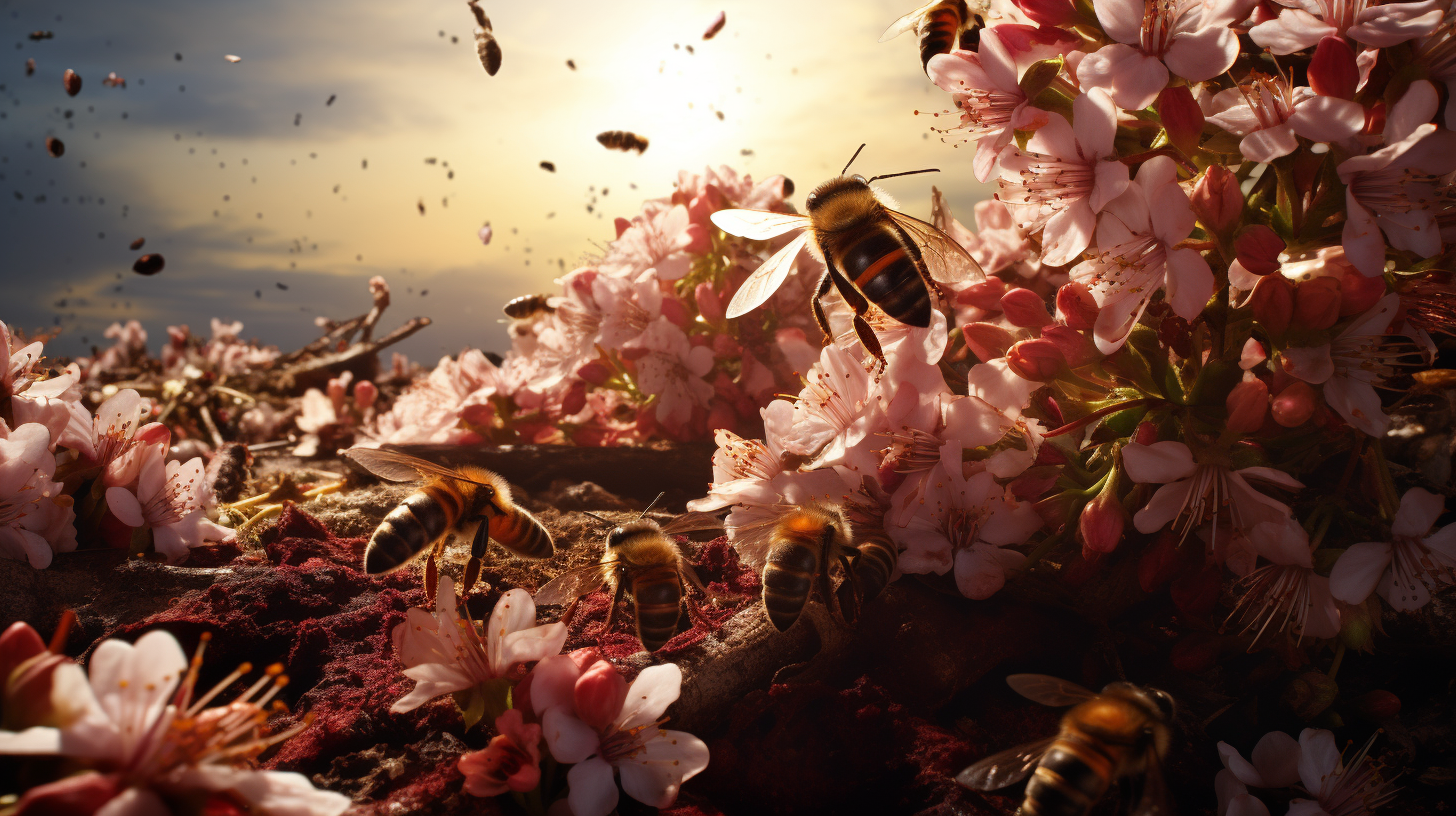In the twilight of natural abundance, the ominous silence of the final orchard speaks volumes. This is no Eden; it’s the last bastion of what used to be, a world where the air was once punctuated with the vibrant hum of pollinators busily ensuring crop diversity and food security. Now, stark branches reach out like skeletal fingers, and the bitter tin can clatter of mechanical drones the only echo of nature’s erstwhile symphony.
The disappearance of pollinators is an environmental catastrophe that we were warned about, yet remained immobile against its stark inevitability. Without bees, butterflies, and their kin, the act of pollen transfer—a lifeblood ritual for the propagation of fruits, vegetables, and nuts—teeters on the precipice of myth.
Amidst the desolation, we still find ‘Tenders’—the last wave of farmers desperately sewing hand-pollinated crops into the increasingly infertile and silent earth, a practice so labor-intensive that it’s a mere whisper of hope against the raging gale of impending hunger. They share lineage with the ‘Sole Tenders’ and the ‘Soil Pirates’ of lore, yet their tale feels more elegy than triumph.
Where once pollinators contributed to a robust and diverse food system, we now rely on the precarious thread of biotechnology. Fields are overseen by automated drones, and genetic modifications are the norm, creating uniform crops devoid of the resilience that natural selection once bestowed. These sterile fields are defended by doctrines claiming technological salvation, but behind each claim lies a parable of avarice and apathy.
Suppose we peer through the glass of this grim reality. In that case, we bear witness to a civilization pivoting on a paradox—standing amidst the marvels of innovation while burdened by the consequences of its own environmental transgressions. It’s a narrative sharpened by the knowledge that recent articles have lamented the collapse of our microbial allies and the sorrowful tale of our crumbling soils. Yet, this is no mere continuation; it’s the penultimate chapter of human neglect, outlining a world where not even the soil beneath our feet offers solace or sanctuary.
As we navigate this dystopian panorama, humor becomes dark and hope, a treacherous illusion. We dwell within an eerie calmness, haunted by the ghosts of grasshoppers and the wisps of wildflowers long gone—a silent testament to the price of our indiscretions.
It’s a juncture that demands not only a reflection but a stark awakening. As the ‘Final Orchard’ stands, a grim memorial of biodiversity lost, we are faced with the binaries of our existence: advance through the artifice of our creation, or linger in the shadow of the worlds we’ve watched wither and dissolve.
Only through the courage to confront the consequences of our actions and the will to change our trajectory can we hope to write a future different from the plight that unfolds before us. Even as we accept that this world may have moved beyond salvation, the onus remains on us—to ensure the story of the ‘Final Orchard’ is not one that reverberates into reality and consumes the essence of what once was.
